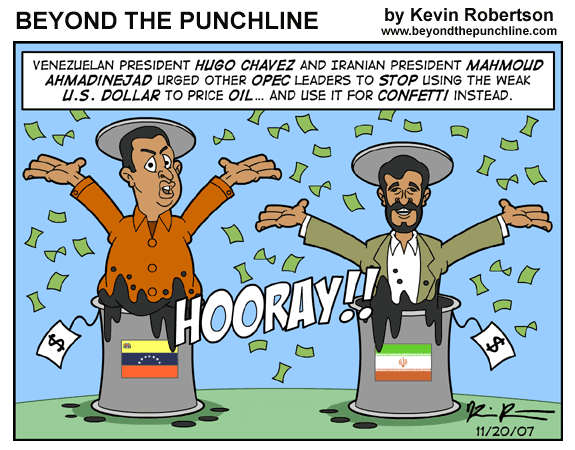
Iran is replacing the U.S. dollar by the euro in the country’s foreign exchange accounts. The Arabian Business reported that the euro will be used to calculate the value of the country’s Oil Stabilization Fund (OSF). The OSF, which forms part of Iran’s foreign exchange reserves, is a contingency fund set up to help the Iranian economy against fluctuating oil prices. It is also used to help both the public and private sectors with their hard currency needs by extending loans.
The order was issued on Sept. 12 following a decision by the trustees of the country’s foreign reserve, Iran’s Press TV said, citing Iran’s semi-official Mehr News Agency. The Iranian Central Bank is also estimated to cut its interest rates for the foreign exchange reserve from 12% to 5% making it cheaper for the Bank to acquire foreign currency
The move was taken because the Iranian government wants to protect itself from the fragility of the U.S. economy and the weak dollar. As the Blooomberg notes the U.S. dollar has declined against the euro in recent months. Analysts have also suggested that by exchanging the dollar to the euro, Iran might be hoping to become less effected by the economic sanctions issued by the U.S.
The decision follows an earlier call from Ahmadinejad for the Organization of Petroleum Exporting Countries (OPEC) to abandon the dollar as the standard currency for oil related transaction. At the third summit of the OPEC in 2007, Venezuelan President Hugo Chavez urged the biggest oil exporting nations to fight against imperialism. While Ahmadinejad called upon OPEC leaders to stop pricing oil in U.S. dollars, which he claimed were “worthless.”
Iran is not the first oil producing country to switch from U.S. dollars to euro. After euro was introduced in 1999, Iraq, at the time having the second-largest oil reserves, traded its oil in euro.

Photo taken from the Press TV.
Cartoon taken from here.